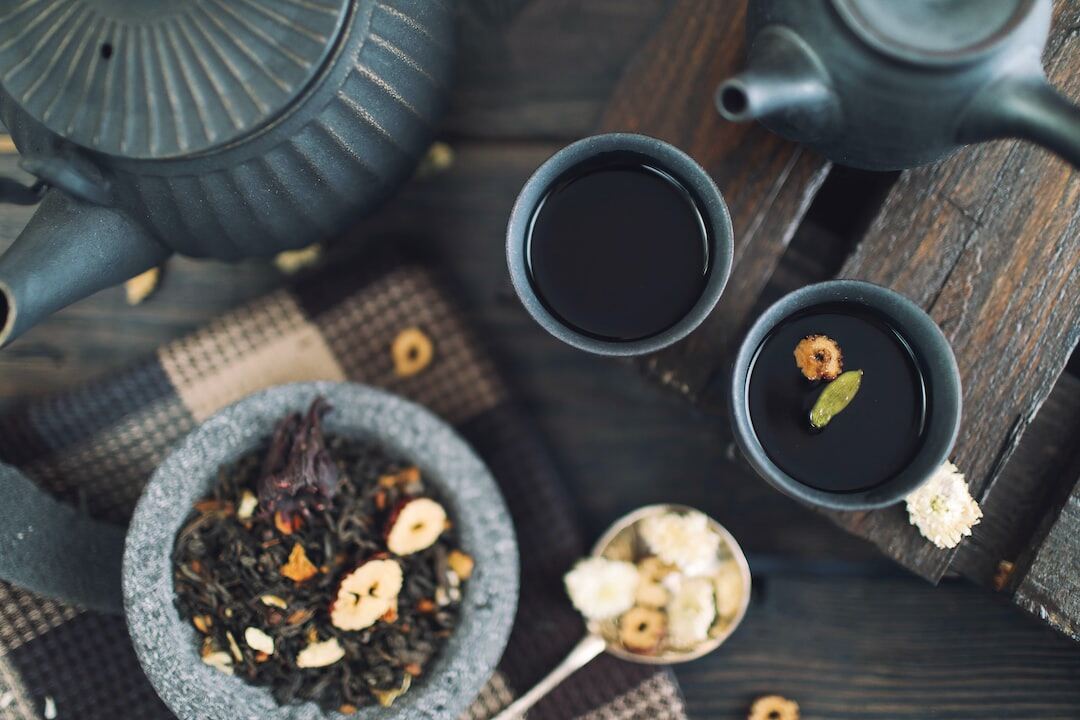Support Your Kidney Health with Hibiscus Tea: A Natural and Delicious Way
Did you know that hibiscus tea can help improve your kidney function and overall health? This colorful and flavorful tea has been found to have numerous health benefits, particularly for those with kidney problems. Let’s take a closer look at what makes hibiscus tea so special and how it can support your kidney health.
The Power of Antioxidants
Hibiscus tea is rich in antioxidants, which are essential for protecting your body from free radicals that can damage cells and cause disease. These antioxidants help neutralize harmful molecules in your body, reducing inflammation and oxidative stress. As a result, hibiscus tea can help support your kidney function by reducing inflammation in your kidneys.
Lower Blood Pressure
Studies have shown that hibiscus tea can help lower blood pressure, which is particularly important for kidney health. High blood pressure can damage your kidneys over time, leading to chronic kidney disease. Hibiscus tea has been found to have diuretic properties, which means it can help increase urine output. This can be beneficial for those with kidney problems, as it helps to flush out excess fluids and toxins from the body.
Reduce Proteinuria
Drinking hibiscus tea can also help reduce proteinuria, which is excess protein in the urine. This is a common complication of diabetes that can lead to kidney damage. A study found that drinking hibiscus tea for 6 weeks significantly reduced proteinuria in patients with diabetic nephropathy.
Improve Kidney Function
Another study found that drinking hibiscus tea for 12 weeks improved kidney function in patients with mild to moderate chronic kidney disease. This is due to the anti-inflammatory properties of hibiscus tea, which can help reduce inflammation in the kidneys and improve overall kidney function.
How to Enjoy Hibiscus Tea
Hibiscus tea is easy to make and can be enjoyed hot or cold. You can brew it using dried hibiscus flowers or purchase pre-packaged tea bags. To make hibiscus tea, simply steep the flowers or tea bags in hot water for several minutes. You can enjoy it plain or add a touch of sweetener and a slice of lemon for extra flavor.
Conclusion
Overall, hibiscus tea is a natural and delicious way to support kidney health and function. Its antioxidant and anti-inflammatory properties make it a powerful ally for maintaining healthy kidneys. So, next time you’re looking for a refreshing beverage, try a cup of hibiscus tea and enjoy its numerous health benefits.
How Hibiscus Tea Can Benefit Kidney Health
Did you know that consuming hibiscus tea may have potential benefits for kidney health? Several studies have investigated the effects of hibiscus tea on kidney function, particularly in individuals with hypertension or diabetes, which are both major risk factors for kidney disease.
Lowering Blood Pressure in Diabetic Patients
One randomized controlled trial published in the Journal of Nutrition in 2010 found that hibiscus tea consumption significantly reduced systolic blood pressure in patients with type 2 diabetes compared to a placebo group. This is significant because high blood pressure is a major contributor to the progression of diabetic nephropathy, which is kidney damage caused by diabetes. Lowering blood pressure in diabetic patients can potentially slow down the progression of this condition.
Improving Blood Pressure and Kidney Function in Hypertensive Patients
A study published in the Journal of Hypertension in 2015 looked at the effects of hibiscus extract supplementation on blood pressure and kidney function in patients with mild to moderate hypertension. The results showed that hibiscus extract supplementation improved both blood pressure control and kidney function in these patients. This is promising evidence that hibiscus tea may have a positive impact on kidney health in hypertensive individuals.
Potential Mechanisms for Hibiscus Tea’s Benefits
A review article published in the Journal of Human Hypertension in 2015 summarized the potential mechanisms by which hibiscus tea may exert its beneficial effects on kidney health. These mechanisms include its antioxidant, anti-inflammatory, and vasodilatory properties, as well as its ability to inhibit the renin-angiotensin-aldosterone system, which plays a key role in blood pressure regulation and kidney function.

Potential Risks and Precautions
While hibiscus tea may have potential benefits for kidney health, it is important to note that more research is needed to fully understand its effects and optimal dosage and duration of use. Some studies have reported adverse effects such as diarrhea, nausea, and liver toxicity with high doses or long-term use of hibiscus extracts, although these effects have not been consistently observed. It is also important to note that hibiscus tea may interact with certain medications, such as antihypertensive drugs and diuretics, so people should consult their healthcare provider before using hibiscus tea as a complementary therapy for kidney health.
Conclusion
Hibiscus tea may have potential benefits for kidney health, particularly in individuals with hypertension or diabetes. While more research is needed to fully understand its effects and risks, incorporating hibiscus tea into a healthy diet may be a low-risk complementary therapy for kidney health. As always, it is important to consult with a healthcare provider before making any changes to your diet or health regimen.
Discover the Refreshing and Health Benefits of Hibiscus Tea
If you are looking for a delicious and healthy beverage to add to your daily routine, consider trying hibiscus tea. This vibrant drink is made from the flowers of the hibiscus plant, which is native to tropical regions. It is known for its tart and slightly fruity flavor, as well as its potential health benefits.
Here are some tips to help you make the perfect cup of hibiscus tea:
Making Hibiscus Tea
There are two main methods for making hibiscus tea, either from fresh or dried flowers. Follow these simple steps:
Using Fresh Flowers:
– Rinse the flowers with water and remove the pistil and stamen from the center of the flower.
– Boil 8 cups of water and add the flowers.
– Let steep for 10-15 minutes, then strain the liquid and add sugar or honey to taste.
Using Dried Flowers:
– Boil 8 cups of water and add 1 cup of dried hibiscus flowers.
– Let steep for 10-15 minutes, then strain the liquid and add sugar or honey to taste.
For a stronger brew, use more hibiscus flowers or let the tea steep for longer.
Brewing Methods:
Hibiscus tea can also be brewed using a teapot or a French press. Simply add the hibiscus flowers to the teapot or French press, pour boiling water over them, and let steep for 10-15 minutes before straining and serving.
Serving Hibiscus Tea
Hibiscus tea can be served hot or cold. To make iced hibiscus tea, chill the tea in the refrigerator or pour it over ice. To enhance the flavor of hibiscus tea, you can add other ingredients such as ginger, mint, or lemon.
Health Benefits of Hibiscus Tea
In addition to its delicious taste, hibiscus tea may offer a range of potential health benefits. It is high in antioxidants, which can help reduce inflammation and protect against cellular damage. It may also help lower blood pressure and cholesterol levels, and aid in weight loss.
However, it is important to note that hibiscus tea can also interact with certain medications, such as those for high blood pressure or diabetes. It is recommended to consult with a healthcare provider before consuming hibiscus tea regularly.
Conclusion
Hibiscus tea is a refreshing and flavorful beverage that is easy to make and offers potential health benefits. Try making a cup today and experiment with different ingredients to find your perfect blend. Just remember to consult with your healthcare provider first if you are taking any medications. Enjoy!
Discover the Versatility and Deliciousness of Hibiscus Tea in Recipes
Are you looking for a versatile ingredient to add to your recipes? Look no further than hibiscus tea! Not only is it delicious, but it also offers numerous health benefits. In this blog post, we’ll explore the many ways you can use hibiscus tea in your cooking and beverages.
Hot or Cold, Hibiscus Tea is a Winner
One of the best things about hibiscus tea is that it can be enjoyed hot or cold. This makes it an incredibly versatile ingredient in recipes. Here are just a few ways you can use hibiscus tea:
Refreshing Summer Drinks
On a hot summer day, nothing beats a refreshing drink. Hibiscus tea can be mixed with sparkling water, sliced fruit, and a touch of honey or agave syrup. The result? A light and flavorful drink that’s perfect for sipping on the porch or by the pool.
Warm Winter Drinks
When the temperature drops, warm up with a spiced hibiscus tea. Combine hibiscus tea with cinnamon, cloves, and orange peel for a cozy and aromatic tea that’s perfect for curling up with a good book or watching a movie.
Cocktails
Hibiscus tea can also be used as a base for cocktails. Try a hibiscus margarita or hibiscus mojito for a fun and unique drink that’s sure to impress your guests.
Pairing Hibiscus Tea with Other Flavors
Hibiscus tea pairs well with a variety of other flavors. Here are a few ideas to get you started:
Citrus
Lemon or lime are natural partners for hibiscus tea. The tartness of the citrus balances out the sweetness of the tea, creating a perfectly balanced flavor.
Herbs and Spices
Hibiscus tea can also be combined with other herbs and spices. Try adding mint or basil for a fresh and herbal flavor. Or, experiment with ginger or cardamom for a warming and spicy kick.
Using Hibiscus Tea in Your Cooking
Hibiscus tea isn’t just for beverages. It can also be used in cooking to add flavor and nutrition to your meals. Here are a few ideas:
Vinaigrettes
Hibiscus tea can make a delicious and unique vinaigrette for salads. Combine hibiscus tea with olive oil, vinegar, and your favorite herbs and spices for a dressing that’s sure to impress.
Marinades
Use hibiscus tea as a marinade for meat or tofu. The acidity of the tea will help to tenderize the protein, while the flavor will infuse into every bite.
Desserts
Finally, hibiscus tea can be used in desserts. Try making sorbet, ice cream, or baked goods with hibiscus tea for a unique and flavorful twist on your favorite treats.
The Health Benefits of Hibiscus Tea
Not only is hibiscus tea delicious, but it also offers numerous health benefits. It’s high in antioxidants, which can help to protect against cell damage and reduce inflammation. It’s also been shown to lower blood pressure and cholesterol levels, making it a heart-healthy choice.
In Conclusion
Overall, incorporating hibiscus tea into your diet can be a fun and delicious way to reap the health benefits of this superfood. Whether you’re sipping on a cold drink on a hot day, or warming up with a spiced tea in the winter, hibiscus tea is a versatile and flavorful ingredient


Leave a Reply